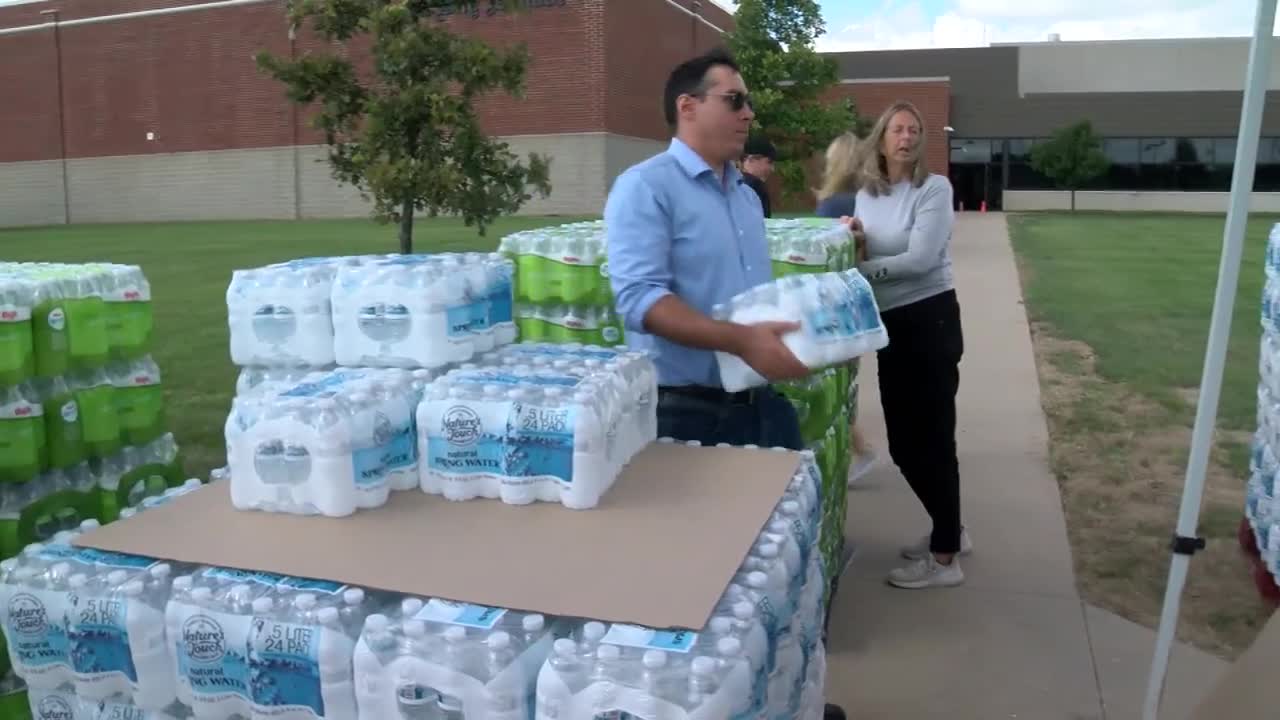WILLIAMS BAY, Wis. — The Wisconsin Department of Natural Resource issued a "do not drink" order in Williams Bay for its water system after tests confirmed dangerously high levels of nitrites, affecting approximately 3,000 residents.
The Walworth County Department of Health told TMJ4 that two cases of methemoglobinemia (known as "blue baby syndrome") triggered an investigation that led to this order. Methemoglobinemia occurs when there is not enough oxygen in the blood.
"This is probably the most significant incident affecting the community since we've been living here," said Gene Ullrich, a Williams Bay resident.
Ullrich and his wife have lived in Williams Bay for more than 20 years. They learned about the order through a village email Wednesday night then alerted their neighbors.

"What struck me was this is not your typical boil order It’s even more serious than that," Ullrich stated. "We took that very seriously. I hopped in the car right away and went to the store, bought up some bottled water."
The village issued a letter on Wednesday warning residents not to drink tap water or use it for cooking due to the contamination. According to the Department of Health Services, potential health impacts can be serious, including blue baby syndrome, birth defects and increased risk of some cancers. Infants and people who are pregnant may be at higher risk for health effects.

According to Village President Adam Jaramillo, the Walworth County Department of Health and Human Services was alerted on August 21 of possible water contamination-related illness. The DNR took samples on August 25, lab results returned on August 27 confirming the level of nitrite in the water exceeded the maximum threshold allowed.
"We are absolutely concerned about the health of all of our residents. That is paramount to us. That is why we worked absolutely fast to get this special emergency board meeting done," said Jaramillo.
Watch: Residents rush to stock up on bottled water after Williams Bay contamination alert
Emergency response mobilized
The Village Board held an emergency meeting Wednesday night and authorized up to $100,000 for emergency supplies to address the crisis. Kwik Trip and Hy-Vee donated semi-trucks of bottled water for residents on Thursday.
Daily water distribution is taking place at Williams Bay School from 3 p.m. to 7 p.m. If it needs to continue as classes begin the distribution will shift to 4 p.m. to 7 p.m. starting on September 2. Crews are also delivering water to sites where people are unable to travel.
"Pretty shocking. You just don't realize how much you use water for anything until you can't use it," said Jennifer Veith, co-owner of Green Grocer and Deli.

Veith said her business turned to bottled water to make coffee and disposed of any prepared food that used tap water following the order. The store also posted signs of the order to alert customers.
"While this is going on, we want to make sure everyone stays safe," Veith said.
When asked about her concerns, Veith said she wonders "how long this has been going on" and "how long it'll be before the water's safe."
"We are very confident that the village is doing everything it can with the information they have," Ullrich said. "At the same time, I think the village of Williams Bay residents have a legitimate concerns."
Village working on solution
The village will temporarily increase chlorine levels at the water plant and flush the system to eliminate the nitrites. Residents are invited to a meeting at Williams Bay School on Tuesday September 2 to ask questions.
The initial letter to the community noted in 2021, the DNR notified the village that water system ammonia levels were rising and could lead to elevated nitrite. Williams Bay developed a DNR-approved solution to modify the water plant and automatically add chlorine to the water. The improvements have been under construction with expected completion by the end of November.
Jaramillo noted that the samples from the water plant on July 30 showed safe readings, raising questions about when the contamination occurred.
The village president explained that the nitrification process occurs in the pipes, and heat is an exacerbating factor. Jaramillo said that the village is looking to take water sample at the distribution level during the summer months in an effort to catch issues early.
This story was reported on-air by a journalist and has been converted to this platform with the assistance of AI. Our editorial team verifies all reporting on all platforms for fairness and accuracy.
It’s about time to watch on your time. Stream local news and weather 24/7 by searching for “TMJ4” on your device.
Available for download on Roku, Apple TV, Amazon Fire TV, and more.




